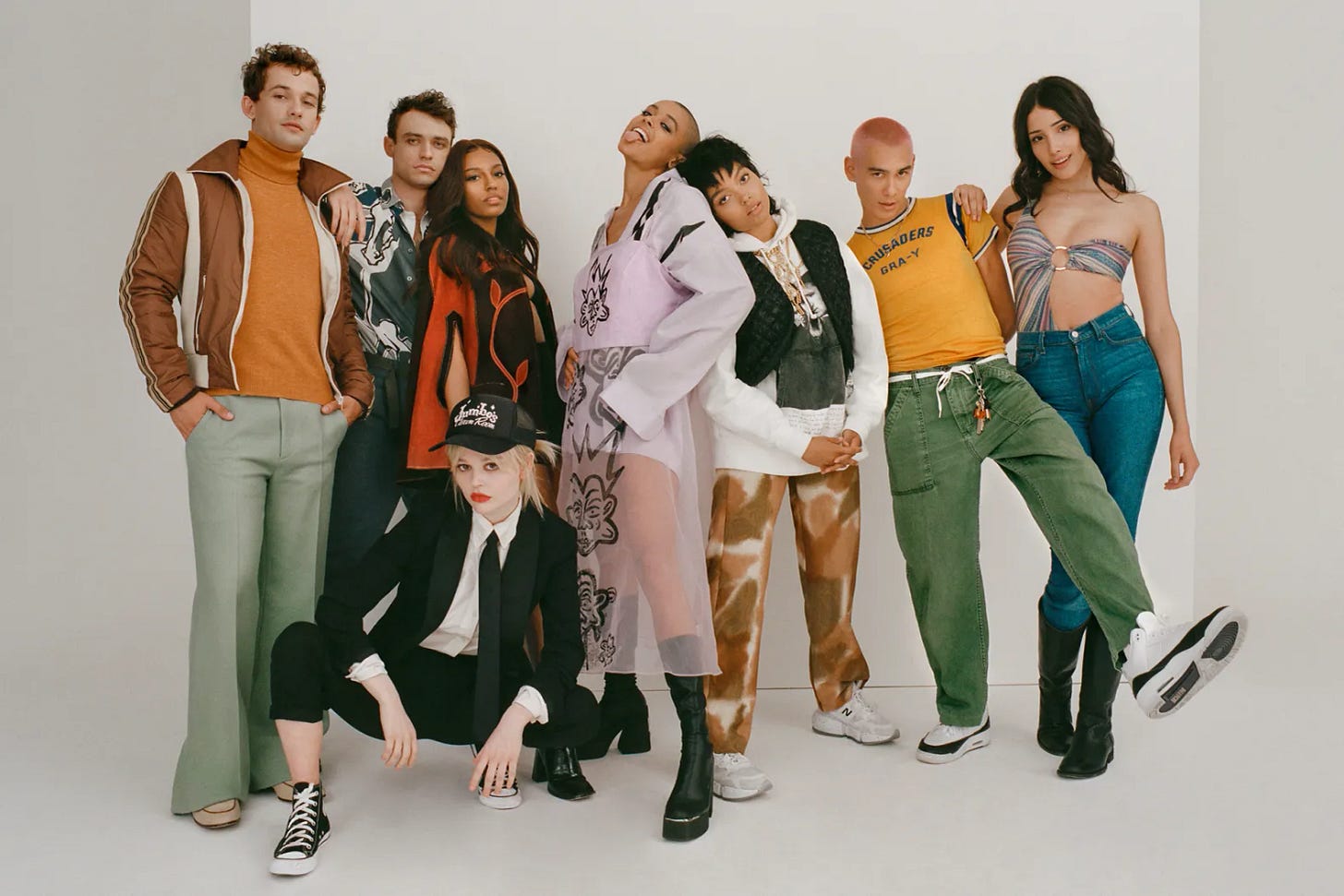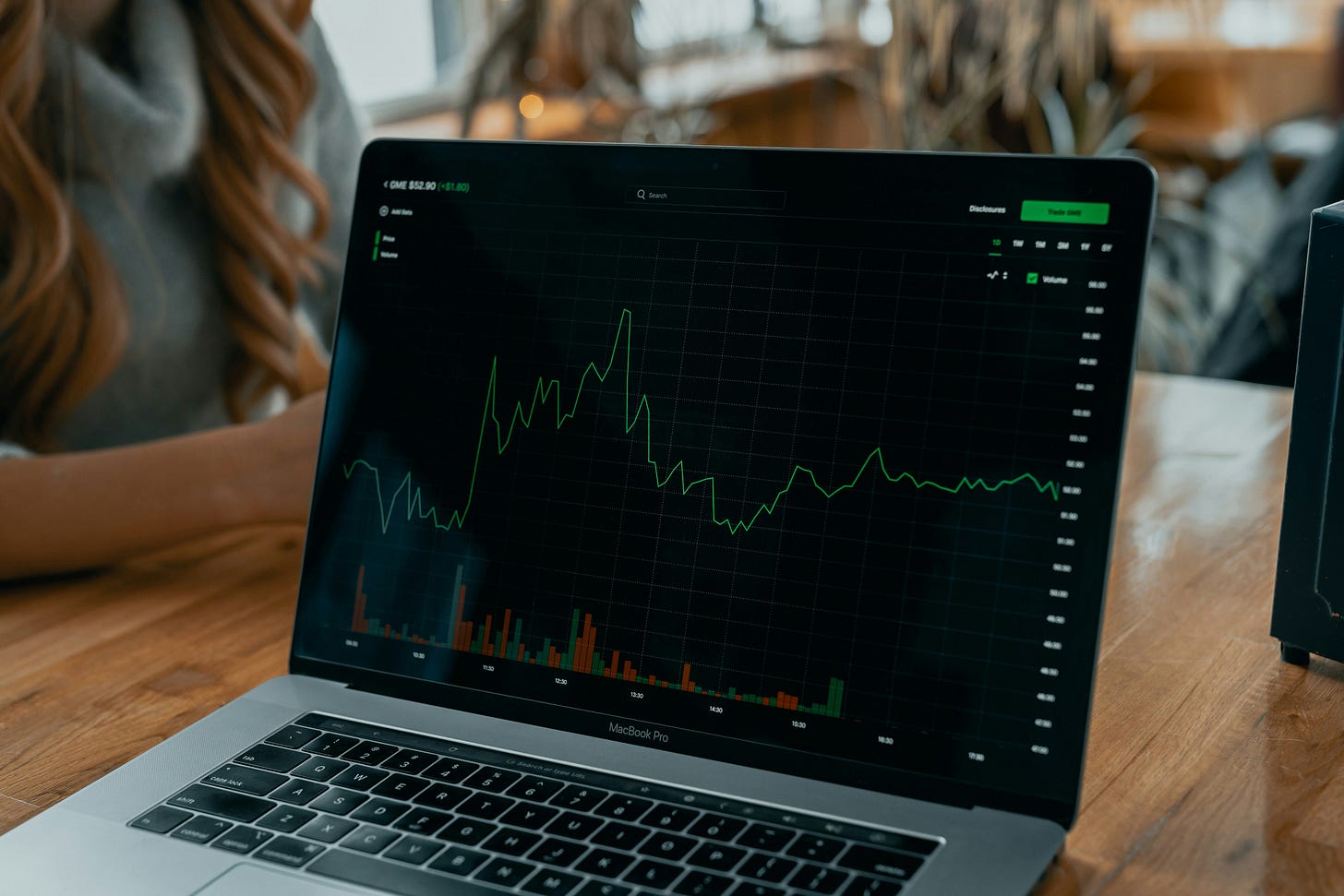Gossip Girl and the Gilded Recession: How a Franchise Mirrors Economic Uncertainty
From Wall Street’s Collapse to COVID’s Aftermath, Gossip Girl Has Tracked America’s Obsession with Wealth Through Times of Crisis.
The hit franchise Gossip Girl has faced notoriety over the years for its depictions of wealth and social status among New York City’s youth. But beyond the designer wardrobes and scandalous plotlines, the series has also reflected periods of looming economic uncertainty. The original series premiered in 2007 against the backdrop of the Great Recession — caused by the collapse of the housing market — while the 2021 reboot arrived in the wake of the COVID-19 pandemic’s economic downturn.
While both series are best known for their iconic characters, lavish Upper East Side lifestyles, and drama-filled storylines, they also mirror the tensions of their time — offering escapism and commentary as renewed economic fears grow amid the ongoing trade war.
Gossip Girl (2007–2012): Escapism in the Age of Collapse
The original Gossip Girl premiered in 2007 against the backdrop of the Great Recession, offering escapism as the housing market collapsed and unemployment levels in the United States reached 10%. Research from the Bureau of Labor Statistics found that more than 8.7 million people lost their jobs, while households lost $19 trillion in net worth as stock markets plummeted.
Yet Gossip Girl provided a fantasy — a peek into the insulated lives of New York City’s elite youth — through characters who embodied untouchable wealth. Among them were Blair Waldorf, portrayed by Leighton Meester, a queen bee and daughter of fashion designer Eleanor Waldorf; Serena van der Woodsen, portrayed by Blake Lively, a glamorous socialite and daughter of art collector and philanthropist Lily van der Woodsen; Chuck Bass, portrayed by Ed Westwick, the enigmatic son of real estate mogul Bart Bass; Dan Humphrey, portrayed by Penn Badgley, an ambitious writer from Brooklyn who infiltrates the Upper East Side social scene; and Nate Archibald, portrayed by Chace Crawford, a lacrosse star and son of a wealthy banker. Other notable characters included Jenny Humphrey, played by Taylor Momsen, and Georgina Sparks, portrayed by the late Michelle Trachtenberg.
Airing during the Obama years, the series glamorized success at a time when scrutiny toward the wealthy was intensifying. In 2011, the Occupy Wall Street movement marked a shift in public perception as protesters took to Lower Manhattan to challenge economic inequality, capitalism and corporate power. The movement soon spread to other cities including Los Angeles, Baltimore, Washington, D.C., and Boston.
Penn Badgley publicly supported Occupy Wall Street, telling New York Magazine in 2012, in reference to The Hunger Games, that the film is about “the one percent.”
“I think it’s interesting that if anyone camps out for anything to buy — an iPad or tickets — they’re fine,” said Badgley.
“But now you can’t even stay all night in Zuccotti Park, even though it’s open to the public 24 hours a day — theoretically. I think it raises an interesting point of property versus people, and there’s definitely an element of that in The Hunger Games.”
As economic realities set in, the show’s popularity began to wane. Gossip Girl went from a ratings high of nearly 4 million viewers during its second season in 2008 to just 700,000 viewers for the premiere of its final season in 2012.
“Gossip Girl tried to sell escapism, and until the recession hit, it succeeded,” wrote Judy Berman in a 2012 piece for The Atlantic.
“It will go out like the waning aristocracy it is — dripping with jewels, mired in scandal, and with the stubborn tenacity of a dying breed that once ruled the world.”
Gossip Girl (2021–2023): A Reboot for the Unequal Recovery
The 2021 reboot of Gossip Girl premiered in the aftermath of the COVID-19 recession, amid heightened awareness of racial injustice following the murder of George Floyd — a Black man killed by Minneapolis police — and the rise of the Black Lives Matter movement. The show also reflected a time of widening economic inequality.
“These kids wrestle with their privilege in a way that I think the original didn’t,” said showrunner Josh Safran in an interview.
“In light of [Black Lives Matter], in light of a lot of things, even going back to Occupy Wall Street, things have shifted.”
Research from the Economic Policy Institute found that income inequality rose significantly after the Great Recession. From 2009 to 2015, incomes for the top 1 percent grew faster than those of the bottom 99 percent in 43 states and Washington, D.C. During the COVID-19 pandemic, billionaires collectively gained $2.1 trillion, while more than half of Americans continue to live paycheck to paycheck.
The reboot follows Julien Calloway, portrayed by Jordan Alexander, a social media influencer and queen bee; Luna La, portrayed by Zión Moreno, a transgender socialite and Julien’s stylist; Zoya Lott, portrayed by Whitney Peak, a book-smart student and Julien’s half-sister; Otto “Obie” Bergmann IV, portrayed by Eli Brown, a wealthy teen with a passion for social justice; and Audrey Hope, portrayed by Emily Alyn Lind, Julien’s best friend and daughter of fashion designer Kiki Hope. Other characters included Max Wolfe, portrayed by Thomas Doherty, a spiritual successor to Chuck Bass; Monet de Haan, portrayed by Savannah Lee Smith, a mean girl and Julien’s friend; and Akeno “Aki” Menzies, portrayed by Evan Mock, the son of a billionaire who enters a polyamorous relationship with both Audrey and Max.
While characters like Obie and Zoya were involved in activism and social causes, the show was criticized for being overly politically correct — missing the escapism many viewers expected.
“There are frequent disclaimers and signposts meant to indicate that the show is progressive and politically correct, but they usually preface plot points and lines that are still sexist and status-obsessed, ultimately focused on ensuring that there are still winners and losers,” wrote Yasmin Hamilton in The Amherst Student.
“The show ultimately prioritizes [a] straight, cisgender, white man’s preferences, even while claiming the opposite.”
After the reboot was canceled following its second season, many critics blamed its lack of connection with its audience. They argued that the original series offered a retreat from economic uncertainty — a promise the reboot failed to deliver.
“Gossip Girl hates rich people way too much,” wrote Kyndall Cunningham in The Daily Beast.
“I don’t really need to see this heavy-handed criticism constantly expressed on a show where I’m ultimately supposed to empathize with the characters in one way or another. Not to mention that I and so many other fans consumed the original Gossip Girl as a form of escapism from our working-class lives.”
The reboot’s portrayal of activism was also seen as hypocritical. Obie lived in a Brooklyn penthouse and Zoya in a spacious Upper West Side apartment, both benefiting from wealth — unlike the original cast, who never apologized for their privilege.
“The Gossip Girl reboot gives us rich kids preaching support for liberal causes while continuing to benefit from and indulge in a life of excess and frivolity,” wrote Maralee Nieves in a MovieWeb report.
“The characters of the original series were selfish and privileged, but they didn’t try to act sanctimonious at the same time. They did terrible things and often were unapologetic about it, giving the show a satirical element wherein it could criticize the misdeeds of the elite.”
“Making the reboot characters socially conscious even as they continue to be out of touch and frivolous makes them hypocritical in a way that the show doesn’t seem to be self-aware of,” she added.
Despite criticism, the Gossip Girl franchise remains culturally influential. On TikTok, users glamorize characters like Blair Waldorf, fashion influencers cite the series as style inspiration, and fans continue visiting New York landmarks featured in the show — a testament to its enduring escapist appeal, even as new economic uncertainty looms amid an ongoing trade war.
Gossip Girl in 2025: A Trade War Backdrop
The Introspective has closely followed the ongoing trade war during President Donald Trump’s second term. Last month, Trump announced a baseline 10% tariff—taxes on imports—on all countries the United States trades with.
“My fellow Americans, this is Liberation Day,” Trump said.
“April 2, 2025, will forever be remembered as the day American industry was reborn, the day America's destiny was reclaimed, and the day we began to make America wealthy again.”
Tariffs of up to 25% were imposed on Mexico and Canada, signaling rising tensions between the three nations and an end to the free-trade era that shaped global commerce. A previous report noted that more than $3.6 billion in goods cross the U.S.-Canada border daily, with Canada serving as the top export market for 34 U.S. states—affecting millions of jobs in both countries.
Canadian Prime Minister Mark Carney declared that the U.S.-Canada relationship was effectively over following the tariffs, sending shockwaves through the global economy as stock markets have fluctuated since early April.
“The old relationship we had with the United States—based on deepening integration of our economies and tight security and military cooperation—is over,” Carney said.
“We must fundamentally reimagine our economy. We will need to ensure that Canada can succeed in a drastically different world.”
China has borne the brunt of the trade war, with Trump issuing a 125% tariff on Chinese imports and threatening to increase it to 245%. Experts have described the situation as a “new Cold War.”
“The U.S. and China are in a state of economic decoupling, and there do not seem to be any guardrails to prevent escalations in trade tensions from spreading to other areas,” former U.S. diplomat Rick Waters told The Wall Street Journal.
“It’s becoming more difficult to argue that we’re not in a new Cold War.”
At the same time, fears of a recession have grown. A prior Introspective report found that gross domestic product (GDP) declined by 0.3% in the first quarter—winter—of 2025, marking the first contraction in years. Weekly unemployment claims have risen to more than 241,000, with claims in New York state alone doubling to 30,000.
“Nonetheless, the deterioration in the timeliest hiring and firing indicators over the last couple of weeks suggests that jobless claims will trend up over coming weeks,” economist Sam Tombs said in an interview with CNBC.
As Gossip Girl continues to capture attention, both the original and reboot reflect the economic realities of their time. From the post-recession glamour of the original to the socially conscious reboot—and now a backdrop defined by trade wars—the franchise mirrors shifting American values. Gossip Girl remains a cultural lens, revealing not just who is watching, but what they are trying to escape.







